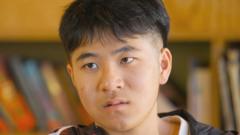Zhang Junjie, a young protester, found himself in a psychiatric hospital after voicing dissent against China's government policies. At just 17, after protesting the country's strict lockdown measures, Junjie was sent to a facility where he was diagnosed with schizophrenia—an assertion made by the hospital staff who restrained him and forced medication upon him. His story is part of a broader pattern indicating that those dissenting against the Chinese government are being involuntarily hospitalized and treated under the guise of mental illness.
Reports indicate that this trend of forced hospitalizations is not a new issue in China, but recently, it has seen a resurgence. Junjie recounted his harrowing experience of restraint and forced medication, explaining that upon turning 18, he was taken to what was claimed to be a COVID testing site but turned out to be a psychiatric institution. For 12 days, he remained there, receiving treatment against his will and hearing from staff that his political views indicated mental instability.
Following his release, Junjie found himself facing the police again after defying a fireworks ban, leading to another hospitalization for over two months. He was prescribed anti-psychotic drugs that negatively impacted his mental state. Fearing another involuntary commitment, he decided to flee to New Zealand, leaving behind family and friends without any farewells.
The BBC investigation discovered at least 59 other individuals who have faced similar circumstances after dissenting against local authorities. Advocate Huang Xuetao, a crucial figure in drafting China’s Mental Health Law, noted a troubling decline in legal protections preventing such abuses. He stated that local police often misuse their power, avoiding accountability by labeling those who dissent as mentally ill.
Previous instances were observed where individuals sought legal remedy for their wrongful hospitalization yet faced significant obstacles. One man, Mr. Li, was detained after protesting police actions and later diagnosed by an external psychiatrist. He attempted to challenge this diagnosis but was met with judicial rejection.
Recent cases have also emerged, such as that of vlogger Li Yixue, who accused police of misconduct after which she was reportedly hospitalized again. The increased attention on these narratives suggests a growing awareness of the misuse of psychiatric practices to suppress dissent.
In response to the BBC's investigation, the Chinese embassy emphasized that the government has reaffirmed commitments to improve the mechanisms surrounding mental health laws. However, skepticism remains as the reality indicates a pervasive undercurrent of political repression disguised as healthcare practices.
As calls for justice grow louder, former victims and activists continue to navigate the murky waters of China's mental health system, raising critical questions about human rights, societal controls, and the future of dissent in China.


















